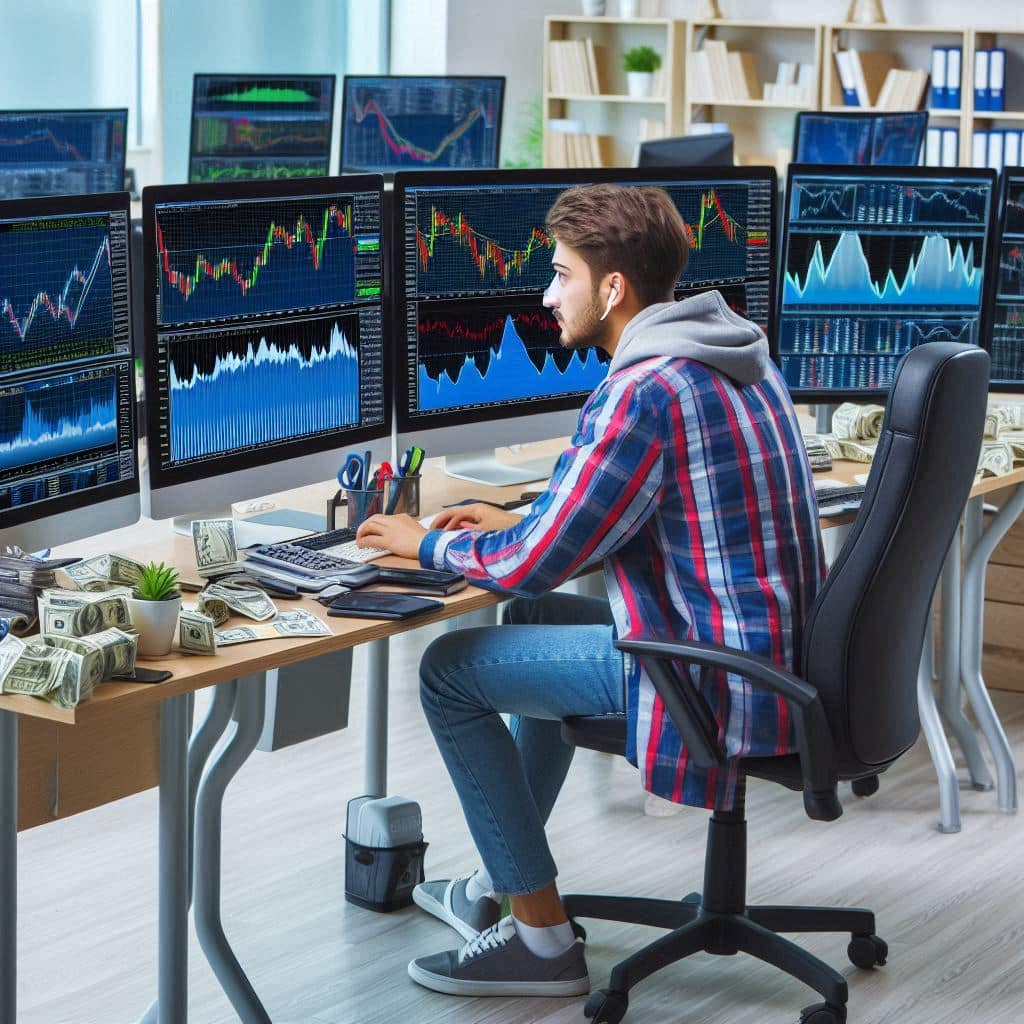Can You Self Learn Forex?

The world of Forex trading is both fascinating and complex. For many, it seems like an arena reserved for financial experts. However, the question arises: Can you self learn Forex? The answer is a resounding yes. With the right resources, dedication, and strategic approach, anyone can master Forex trading. Let’s explore how you can embark on this self-learning journey.
Understanding the Basics of Forex Trading
Before you dive into the intricacies of Forex trading, it’s crucial to grasp the fundamentals. Forex, short for foreign exchange, involves trading currencies. The goal is to profit from the fluctuations in exchange rates. You trade currency pairs, such as EUR/USD or GBP/JPY. Each pair has a base and quote currency. The exchange rate tells you how much of the quote currency you need to buy one unit of the base currency.
Educational Resources: Your Starting Point
To begin self-learning Forex, you need access to reliable educational resources. Online courses, e-books, and webinars can provide a strong foundation. Many platforms offer free or paid courses tailored to both beginners and advanced traders. Additionally, joining forums and online communities can be incredibly beneficial. These platforms allow you to interact with experienced traders and learn from their insights.
Creating a Structured Learning Plan
A structured learning plan is vital for effective self-learning. Start by setting clear, achievable goals. Break down your learning into manageable sections. Dedicate specific time slots for studying and practice. For example, you might spend an hour each day learning chart analysis or studying economic indicators. Consistency is key. Regular practice and study will help solidify your knowledge and skills.
Practicing with Demo Accounts
Theory alone won’t make you a successful trader. Practical experience is essential. Most trading platforms offer demo accounts. These accounts simulate real trading conditions without risking actual money. Use them to practice your strategies and gain confidence. Treat your demo account seriously. The more you practice, the better prepared you’ll be for live trading.
Learning Technical Analysis
Technical analysis is a critical skill in Forex trading. It involves analyzing charts and using various indicators to predict future price movements. Start by learning the basic concepts, such as support and resistance levels, trend lines, and chart patterns. Gradually, delve into more advanced tools like moving averages and the Relative Strength Index (RSI). Plenty of online tutorials and articles can guide you through these concepts.
Mastering Fundamental Analysis
Fundamental analysis complements technical analysis. It involves evaluating economic indicators, news events, and geopolitical developments. Understanding how these factors impact currency prices is crucial. For instance, interest rate changes or employment reports can significantly affect currency values. Stay updated with global news and economic calendars. This knowledge will help you make informed trading decisions.
Developing a Trading Strategy
A well-defined trading strategy is essential for success. Your strategy should include entry and exit points, risk management rules, and specific goals. Test different strategies in your demo account to see what works best for you. Consider factors like your risk tolerance and trading style. Whether you prefer day trading, swing trading, or long-term investing, having a clear plan is crucial.
Risk Management and Emotional Control
Successful Forex trading isn’t just about making profitable trades. It’s also about managing risks and controlling emotions. Set stop-loss orders to limit potential losses. Never risk more than you can afford to lose. Additionally, maintain emotional discipline. Avoid making impulsive decisions based on fear or greed. Developing a calm and rational approach will enhance your trading performance.
Continuous Learning and Adaptation
Forex markets are dynamic and ever-changing. Continuous learning and adaptation are essential. Stay updated with market trends, new strategies, and evolving technologies. Join webinars, read trading journals, and follow expert blogs. The more you learn, the more adaptable and successful you’ll become. Remember, every trader, even the experts, started as a beginner.
Building a Support Network
While self-learning is possible, having a support network can be incredibly beneficial. Join online communities, forums, or local trading groups. Engage with other traders, share experiences, and seek advice. Learning from others’ mistakes and successes can speed up your learning curve. Additionally, having a support network can keep you motivated and inspired.
Final Thoughts: The Journey to Mastery
Self-learning Forex is a challenging yet rewarding journey. With dedication, structured learning, and practical experience, you can master the art of Forex trading. Embrace the process, stay disciplined, and continuously seek knowledge. The road to becoming a proficient trader is long, but with perseverance, success is within your reach. Start your journey today and unlock the potential of Forex trading.

